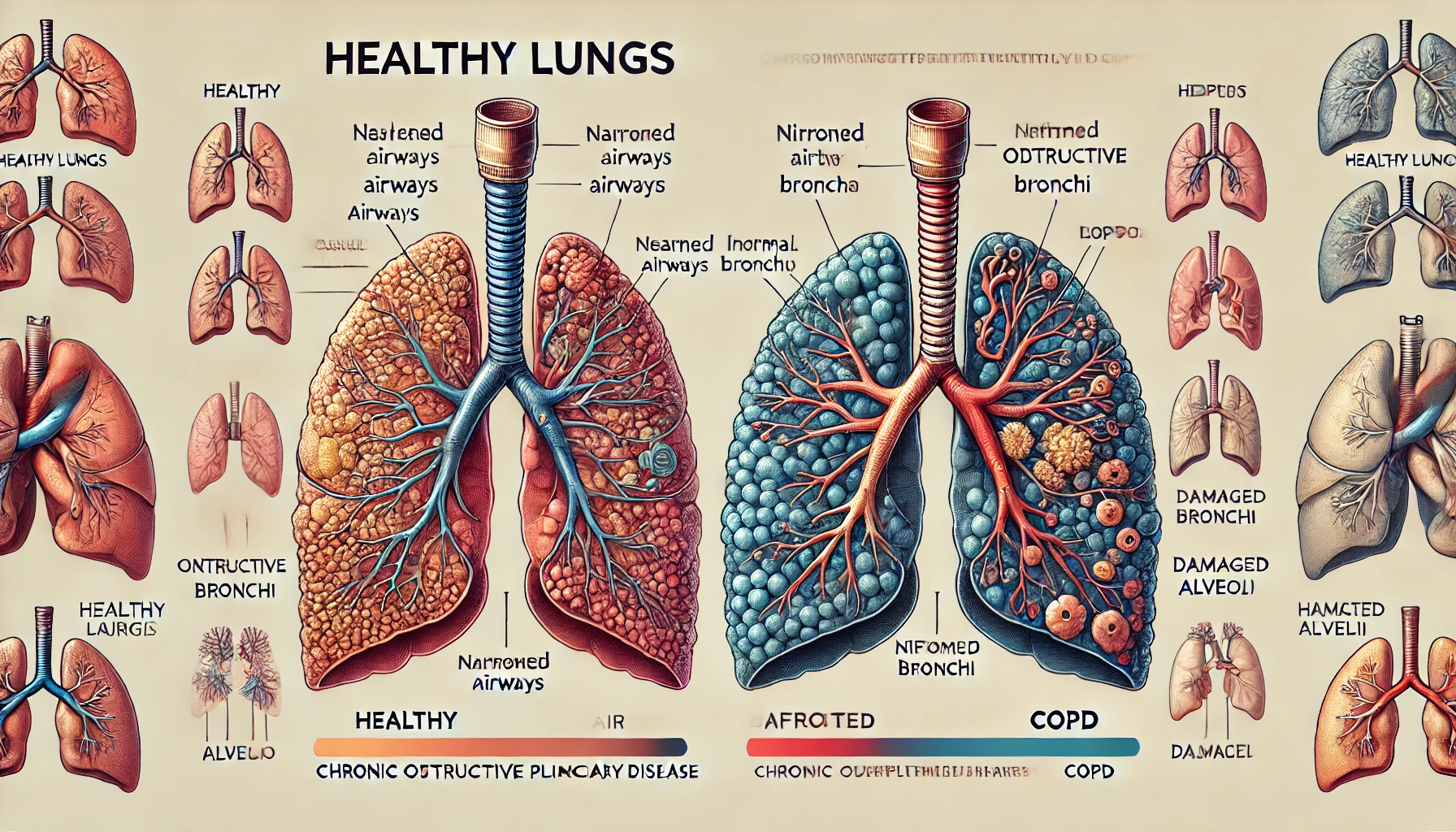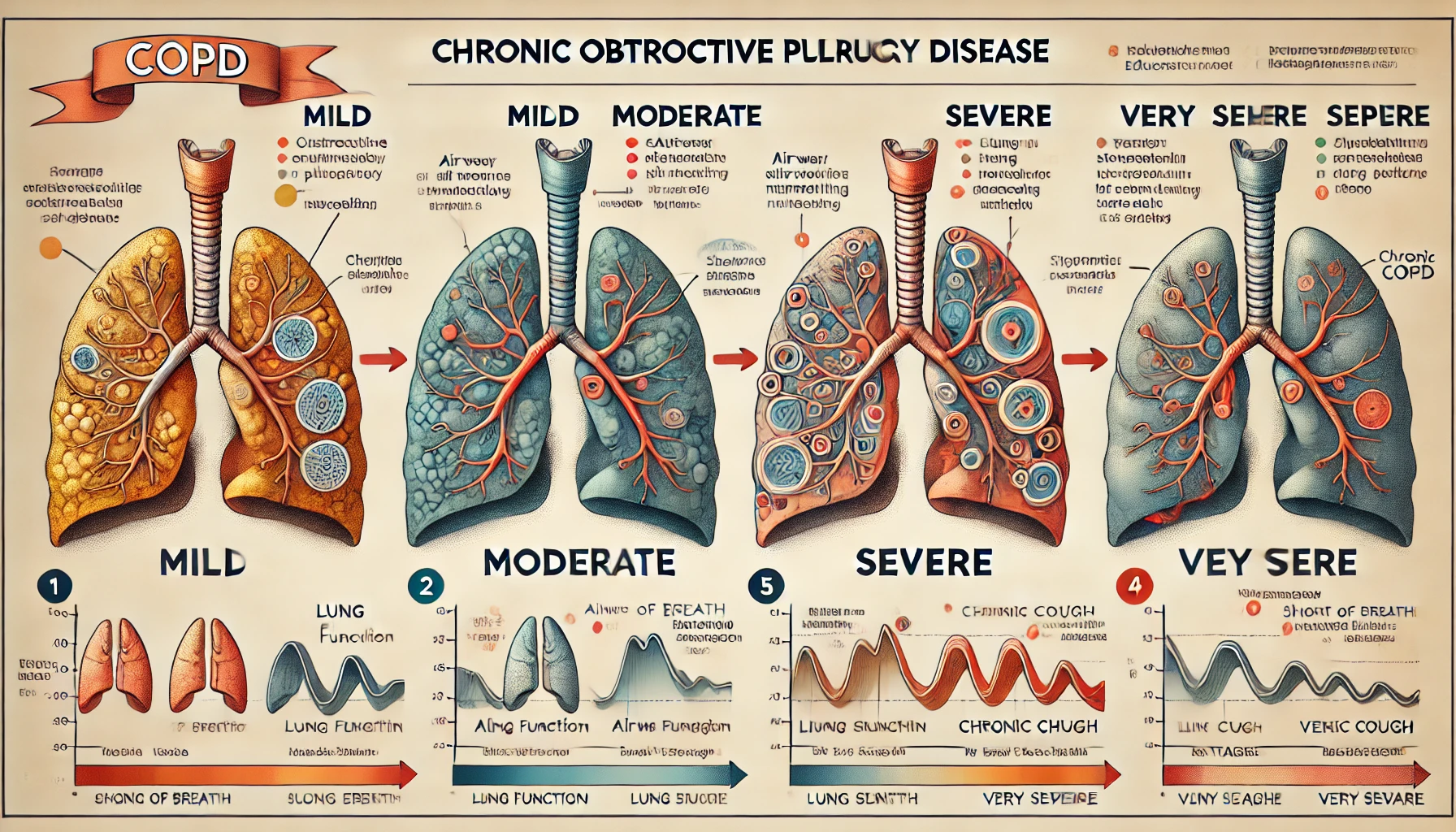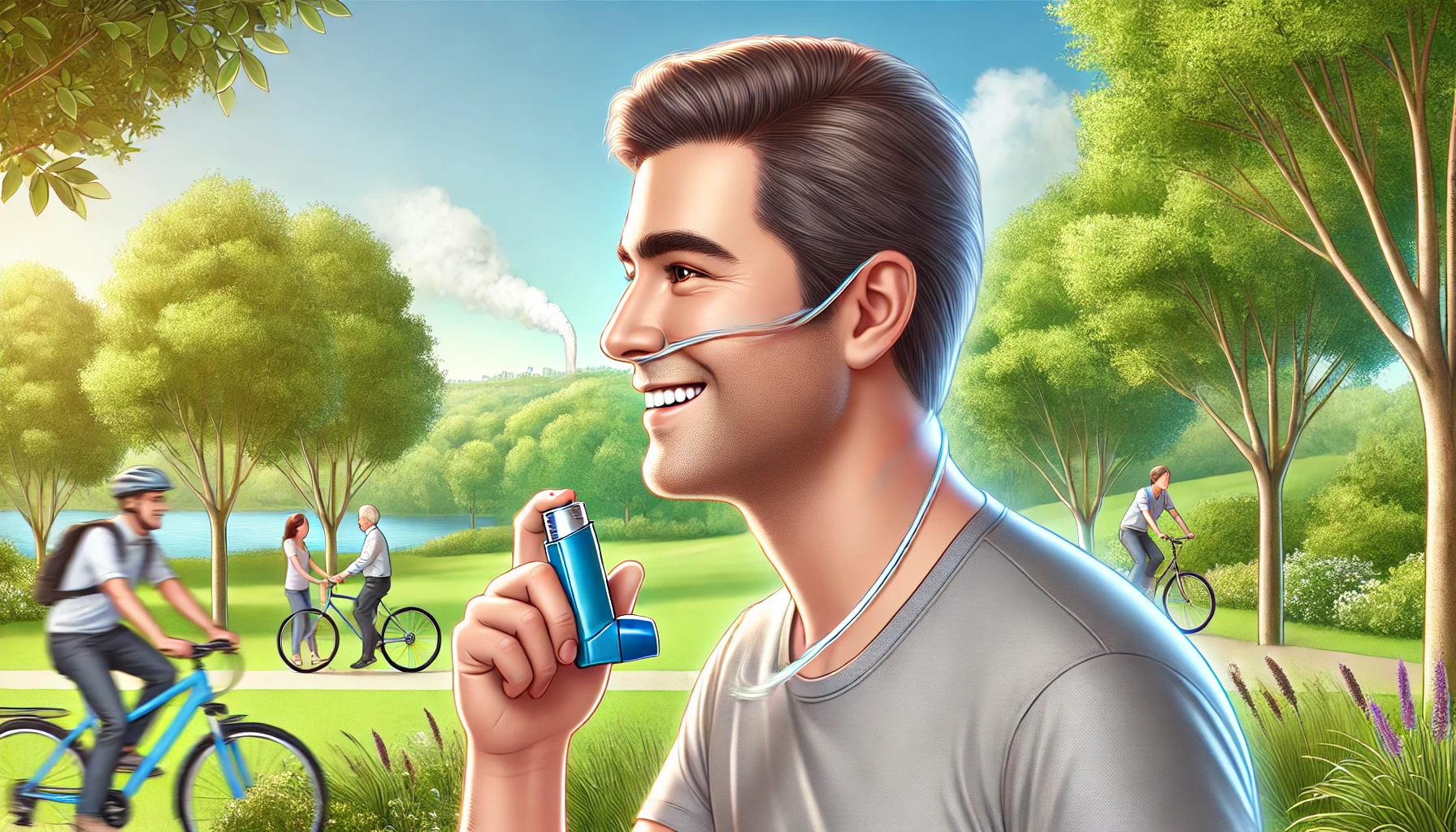COPD: Causes, Symptoms, and Care
Dr. Jane Doe
7 Sep 2024 • 8 min read
Introduction to COPD
Chronic Obstructive Pulmonary Disease (COPD) is a chronic inflammatory lung disease that causes obstructed airflow from the lungs. It is characterized by long-term breathing problems and poor airflow. The main symptoms include shortness of breath, cough, and sputum production. COPD is typically caused by long-term exposure to irritating gases or particulate matter, most often from cigarette smoke.

What is COPD?
COPD is a progressive disease, meaning it typically worsens over time. It includes conditions such as emphysema and chronic bronchitis. Emphysema gradually damages the air sacs (alveoli) in the lungs, making it difficult to breathe. Chronic bronchitis involves long-term inflammation of the bronchial tubes, leading to a persistent cough and mucus production.

Symptoms of COPD
- Shortness of Breath: Especially during physical activities.
- Wheezing: A high-pitched whistling sound when you breathe.
- Chest Tightness: Discomfort or a feeling of pressure in the chest.
- Chronic Cough: A persistent cough that may produce mucus (sputum) that may be clear, white, yellow, or greenish.
- Frequent Respiratory Infections: Recurring colds or respiratory infections.
- Lack of Energy: Feeling fatigued and low on energy.
- Unintended Weight Loss: Weight loss, especially in the later stages of COPD.
- Swelling in Ankles, Feet, or Legs: Swelling, particularly in the later stages of COPD.

Causes and Risk Factors
COPD is mainly caused by long-term exposure to lung irritants.
- Tobacco Smoking: The primary cause of COPD in developed countries.
- Exposure to Fumes and Pollutants: Long-term exposure to chemical fumes, vapors, and dusts in the workplace.
- Genetics: A rare genetic disorder known as alpha-1 antitrypsin deficiency can cause COPD.

Diagnosing COPD
- Medical History and Physical Exam: The doctor will ask about symptoms, family history, and exposure to lung irritants.
- Spirometry: A non-invasive test to measure lung function by assessing how much air you can inhale and exhale and how quickly you can exhale.
- Chest X-ray or CT Scan: To visualize the lungs and look for emphysema or other conditions.
- Arterial Blood Gas Analysis: To measure the levels of oxygen and carbon dioxide in the blood.

Stages of COPD
- Stage 1 (Mild): Mild airflow limitation with or without chronic symptoms such as cough and sputum production.
- Stage 2 (Moderate): Worsening airflow limitation with shortness of breath typically developing on exertion.
- Stage 3 (Severe): Further worsening of airflow limitation, increased shortness of breath, and repeated exacerbations.
- Stage 4 (Very Severe): Severe airflow limitation with chronic respiratory failure and significantly impaired quality of life.

Treatment Options
Treatment for COPD focuses on relieving symptoms, slowing the progression of the disease, and improving overall health.
- Medications: Bronchodilators, inhaled steroids, combination inhalers, and antibiotics to treat respiratory infections.
- Oxygen Therapy: For people with severe COPD and low levels of oxygen in the blood.
- Pulmonary Rehabilitation: A program that includes exercise training, nutritional advice, education, and counseling.
- Surgery: Options include lung volume reduction surgery, lung transplant, and bullectomy.

Lifestyle Changes and Home Remedies
- Quit Smoking: The most important step to slow the progression of COPD.
- Healthy Diet: Eating a balanced diet to maintain strength and energy.
- Regular Exercise: Helps improve overall strength and endurance.
- Avoiding Lung Irritants: Stay away from smoke, dust, and chemical fumes.
- Breathing Techniques: Pursed-lip breathing and diaphragmatic breathing can help improve breathing efficiency.

Complications of COPD
- Respiratory Infections: People with COPD are more susceptible to colds, flu, and pneumonia.
- Heart Problems: COPD can increase the risk of heart disease and heart attack.
- Lung Cancer: People with COPD have a higher risk of developing lung cancer.
- Pulmonary Hypertension: High blood pressure in lung arteries, which can lead to heart failure.
- Depression and Anxiety: Difficulty breathing can lead to emotional stress and mental health issues.

Advances in COPD Research and Treatment
- New Medications: Development of drugs that target inflammation and other pathways involved in COPD.
- Biologic Therapies: Target specific molecules involved in the disease process.
- Gene Therapy: Research into genetic approaches to treat or prevent COPD.
- Telemedicine: Use of technology to monitor patients remotely and provide care.

Conclusion
COPD is a challenging condition, but with the right knowledge and tools, it can be managed effectively. Understanding the causes, symptoms, and treatment options is crucial for improving quality of life. Staying informed about the latest research and advancements in COPD care can provide hope and better outcomes for those affected by the disease.

Dr. Jane Doe
7 Sep 2024 • 8 min read